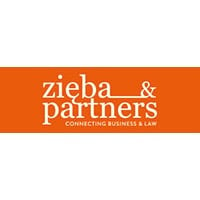

Legal director | Carrefour Romania




Andreea Alexandrescu
Legal director | Carrefour Romania
Head of legal | Elements Development
What are the most important transactions and litigations that you have been involved in during the last two years?
In 2016, Carrefour Romania acquired 86 supermarkets operated by Rewe Group in Romania; the integration that followed was a complex process with interesting legal issues
to be tackled.
In 2017, Carrefour Romania launched a marketplace platform gathering vendors of
food and non-food products. The project
required a multidisciplinary approach even
from a legal perspective, involving consumer law, IP, data protection, antitrust and commercial law. Also, since the beginning of 2017, Carrefour Romania has been preparing for the entering into force of the GDPR. Legal and IT security teams worked together to implement the proper governance, to map internal processes and flows, implement procedures and train the employees. But most and foremost the challenge was to ensure compliance with GDPR and not penalise the business.
Last but not least, I would also like to mention the management of the legislative context as a legal project in itself. During the past two years, managing the effects of the new legislation adopted in Romania and following up on the draft laws proposed (with respect to the retail sector) has proved as challenging as a major M&A transaction.
How important are “soft skills” or personal attributes outside of technical legal skill, and which “soft skills” do you feel are most important for an in-house lawyer to possess?
Painfully important you might say! Without these soft skills, the message may not be correctly understood or it may not be taken seriously. In my experience, communication, a positive attitude and also critical thinking, are keys to building a successful relationship with the internal client. One that is based on trust and respect.
Do you utilise any legal tech products, and if so, how do these assist you in your role?
Google tools for collaborative working, meetings and calls. Communication is thus easy and
fast.
Customised applications for litigations, permits, contract management to follow up on deadlines, statistics and reporting. It saves time and allows in-house lawyers to dedicate time to the tasks where they can really bring added-value.
What advice would you give to any peers or colleagues working in the Romanian market for the first time?
The simple way is the best way. Ask as many questions as you need and make sure you understand the business mechanism and needs before doing anything else.
What can law firms in Romania, and the wider CEE region, do to win more business from you?
Integrated management of legal files. Lately, more and more of our business projects are complex and require expertise in several areas of law (antitrust, consumer law, IP, data protection). At the same time, within law firms, you usually have teams of specialised lawyers whose expertise tends to limit to one or two areas of law. So, if your project involves topics which are relevant from an antitrust perspective but also from data protection, consumer law, IP and tax perspective, even if a single attorney coordinates such projects, your will most likely find yourself dealing with three or four lawyers and every time going back and forth to the specialist on the relevant topic. This is hard. Also, if in time, you work on certain topics with different teams of lawyers depending on the area of expertise, even if they are all part of the same law firm, in the end they might not see the whole picture and thus might not be able to give truly tailored legal assistance.
Also more pragmatism, in-house counsel are under time pressure just as much as business people are. Even if I know it is not easy to anticipate all potential scenarios or consequences, and even if legislation is not clear, it is important that external lawyers provide business-oriented and clear legal advice. We in-house counsel think of being deeply integrated in the business, so when we are asked to provide clear, straightforward and quick answers based on which the internal client can act, the conclusions of the external lawyers should be as simple and direct as possible.
FOCUS ON… THE DIGITAL LAWYER
Technology opened the door to new ways and channels whereby retailers reach out to their customers. Websites, apps and marketplaces are developing more and more and the online versus offline battle is the primary battle in the retail sector. Results are already showing that digital is the way things are going to happen moving forward, for both customers and retailers.
Addressing digital projects raises several challenges both in terms of expertise and project management. Dealing with digital projects from a legal perspective is like putting together a complex puzzle, each piece being a topic from a specific area of law. You have IP law issues, but you also might have data protection, consumer law, commercial law, competition law issues or others.
One might think the best approach is to externalise, getting advice from expert lawyers, specialised in “digital”. However, law firms are generally assigning digital projects to IP and technology teams. The latter contribute and coordinate these projects, but, ultimately, topics pertaining to other areas of law are reviewed by other lawyers. You will most likely be speaking to several lawyers and going back every time to the specialist on the relevant topic.
Another approach would be to turn towards the in-house lawyer specialised in digital. Someone who understands the business, holds all the pieces of the puzzle and can ensure a holistic approach when addressing legal risks. However, this type of expertise needs to be developed and it takes time.
Nevertheless, it is key for companies who have embraced the digital transformation to develop this expertise internally and not to rely solely on external advice. A second opinion or expert advice on very technical issues may still be needed, but the presence of an experienced in-house digital lawyer is essential.
Finally, one might ask if the “digital” lawyer is a specialist or a generalist. Years ago, there would be one in-house counsel in the company handling all legal matters of all types. Later on, given the growing complexity of topics and the increased volume of tasks, companies developed teams of in-house lawyers, inside which you would have specialists.
The “digital” in-house lawyer of today is a little bit
of both.